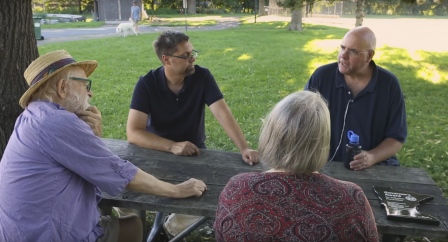TRI and Toxic Releases: What You Can Do
It's your right to know what toxic chemicals are being used in your community. The Toxics Release Inventory (TRI) is a resource for learning about chemical releases and pollution prevention activities reported by industrial and federal facilities.
- What can I do with the Toxics Release Inventory (TRI) data I find?
- What can I do if I think there's a problem at a facility?
- What can I do if there's a facility-related emergency?
- How can I get more information?
- Where can I get help if I want to talk to someone?
What can I do with the TRI data I find?
- You can use TRI data (along with other environmental information) to discuss your community’s environmental health concerns with:
- Neighborhood associations/community groups
- Environmental organizations

- Local colleges and researchers
- Environmental, natural resources, health and/or planning government agencies
- Local and state elected officials
- Industry trade associations
- Industrial facilities
- Use TRI pollution prevention (P2) data to encourage local facilities to implement new P2 activities or expand existing activities.
- Check out the "TRI in Action" report for examples of how individuals and groups are using TRI data to make a difference.
What can I do if I think there's a problem at a facility?
- Report this information to EPA so it can be investigated. EPA, states and tribes regularly monitor each facility's compliance with all environmental regulations.
- Contact your state office of environmental protection for additional information on facility performance, state environmental laws, and environmental conditions.
- Contact the appropriate TRI regional coordinator. Each of EPA's regional offices oversee federal environmental regulations in several states and territories.
- Contact the Office of Occupational Safety Health Administration (OSHA) for worker safety concerns.
- Directly contact company representatives to ask about the data they've provided to EPA. Public contact information for each TRI facility can be found in Section 4.4 of each TRI Reporting Form R. Form Rs can be found by searching for a particular facility in Envirofacts.
What can I do if there's a facility-related emergency?
Your Local Emergency Planning Commission (LEPC) has information on facilities and emergency response plans for your area. Staff at your local fire department will know whom to contact. In the case of an oil spill or other environmental emergency, please contact the National Response Center at 1-800-424-8802.
How can I find more information?
TRI is only one piece of the puzzle. While TRI provides important information about toxic chemical releases in your community, seeing the whole picture requires additional data. Here are some supplemental resources:
- EPA's "My Environment" Tool: Find information on air, water, energy, land, health, and more for a specific location.
- Toxic Chemical Risk and Health Resources: Links to information compiled by EPA and other federal agencies.
Where can I get help if I want to talk to someone?
- Contact the TRI regional coordinator for your location for help understanding TRI data about a particular geographic area or facility.
- Contact the TRI Help Desk (tri.help@epa.gov). TRI Program staff will respond as quickly as possible.
